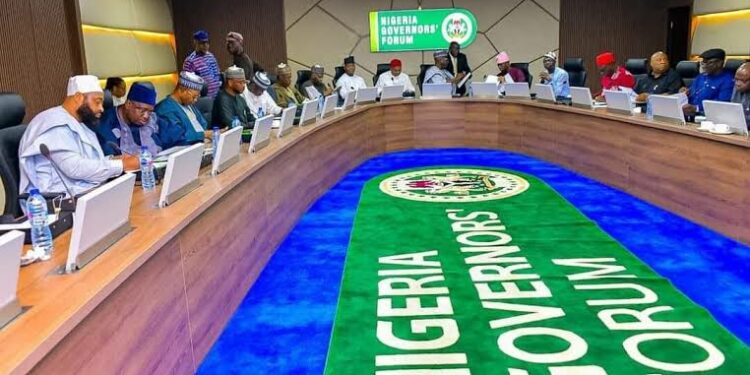
An analysis of the 2024 full-year budget implementation reports of 30 state governments has revealed a concerning trend in fiscal management. Despite generating a total of N2.8 trillion as Internally Generated Revenue (IGR), these states collectively spent N3.03 trillion on operational costs, leaving a deficit of N223 billion.
A significant portion of the overspending went to non-productive expenses such as refreshments, sitting allowances, local and foreign trips, utilities, and medical expenses, raising concerns over fiscal discipline.
Beyond operational costs, the states also spent N1.038 trillion repaying debts owed to local, foreign, and multilateral creditors.
Rising FAAC Allocations and Reliance on Federal Funds
The financial position of many state governments was buoyed by the removal of fuel subsidies and the devaluation of the naira, which led to a 49.24% increase in allocations from the Federal Account Allocation Committee (FAAC). In total, N15.12 trillion was distributed to the three tiers of government, with state governments receiving the highest share of N5.22 trillion (34.5%).
However, with the planned implementation of direct statutory allocations to local governments, state governments could lose access to 32.8% of their FAAC revenue, a move they strongly oppose due to potential disruptions to their financial stability.
State-by-State Fiscal Performance
A review of the fiscal performance of individual states highlighted varying degrees of financial prudence and mismanagement.
• Lagos, Delta, and Plateau emerged as the highest spenders, with expenditures of N578.74bn, N188.16bn, and N184.6bn, respectively.
• Eight states (Rivers, Lagos, Ekiti, Cross River, Delta, Bayelsa, Akwa Ibom, and Abia) exceeded their revenue targets.
• 19 states met between 53% and 99% of their revenue goals.
• Taraba, Niger, and Jigawa performed the worst, generating less than 50% of their projected revenue.
Several states struggled with widening budget gaps:
• Akwa Ibom spent N155.26bn on recurrent expenses, exceeding its generated revenue of N67.07bn by N88.19bn.
• Bauchi spent N138.7bn despite generating only N24.22bn, borrowing N39.64bn and paying N44.22bn in debt service.
• Bayelsa surpassed its revenue target, collecting N67.91bn, but still spent N122.56bn on operating costs and N42.52bn on debt servicing.
• Cross River collected N46.29bn, exceeding its target of N44.04bn, but still borrowed N20.67bn and spent N34.88bn on debt servicing.
• Gombe spent N61.5bn while generating only N20.2bn, relying on N51.42bn in loans and spending N38.34bn on debt servicing.
Meanwhile, some states demonstrated better financial management:
• Abia generated N33.14bn, surpassing its N24.74bn operational expenditure.
• Anambra also maintained a surplus, collecting N42.04bn in revenue while spending N20.67bn on recurrent costs.
Fiscal Sustainability Concerns
The high level of recurrent spending, combined with heavy reliance on FAAC allocations and rising debt obligations, has fueled concerns over the long-term sustainability of state finances. With calls growing for reduced governance costs and more transparent spending, fiscal discipline has become a pressing issue for state governments.
Moving forward, economic analysts emphasize the need for:
• Improved revenue generation strategies to reduce reliance on federal allocations.
• More prudent spending practices, particularly regarding non-essential expenditures.
• Debt restructuring and repayment plans to ease financial burdens.
As financial pressures mount, state governments may be forced to implement tougher fiscal measures to maintain stability and ensure sustainable development.
